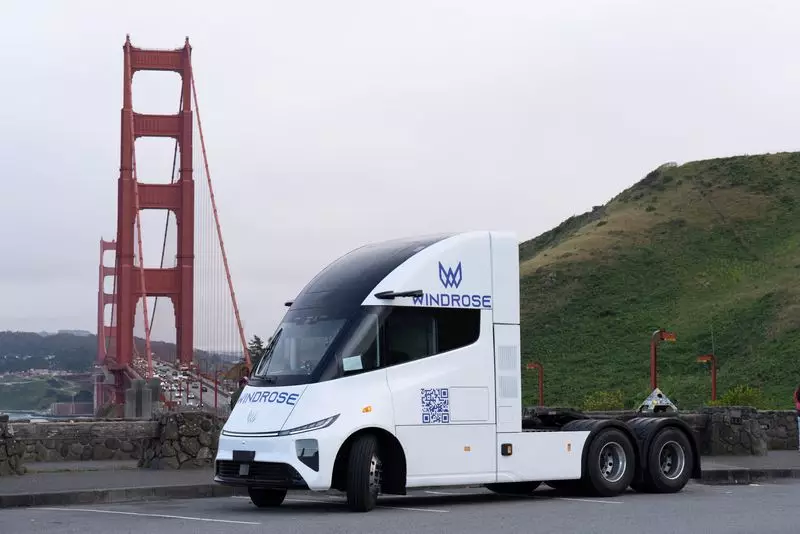The Chinese electric truck startup, Windrose, is planning to establish a U.S. assembly plant for its semi-trucks starting in 2025. This bold move by founder and Chief Executive Han Wen directly challenges Tesla in its home market, signaling a potential return of Chinese electric vehicle companies to the world’s second-largest auto market.
The decision to set up a plant in the U.S. comes amid a complex political environment. While former President Donald Trump expressed support for Chinese investments in the U.S., President Joe Biden’s administration has taken a different stance. The heavy tariffs and exclusion of components linked to China from electric auto incentive schemes have posed challenges for Chinese EV companies like BYD. Windrose’s move to establish a plant in Georgia reflects a strategic decision to navigate these political hurdles.
Market Strategy
Windrose’s U.S. plant will focus on assembling chassis and vehicle parts manufactured in China to cater to its American customers. With a substantial existing order book of 6,400 trucks, the majority of which are from U.S. buyers, Windrose aims to deliver high-quality electric trucks over the next three years. By positioning itself in the U.S. market, Windrose aims to leverage the favorable tariffs on imported trucks and expand its customer base, which includes prominent companies like Nike.
Competition with Tesla
Windrose’s heavy truck will directly compete with Tesla’s Semi at a similar price point of around $250,000. These trucks will offer a battery pack with more than 700 kilowatt hours, allowing them to run over 670 km on a single charge. Despite Tesla’s limited production and delivery of Semi trucks, Windrose believes it can capture a significant market share by offering a reliable and efficient alternative to Tesla’s offering.
In addition to the U.S. market, Windrose is also planning to establish an assembly plant in Belgium in the coming year. By diversifying its manufacturing locations, Windrose aims to navigate the regulatory landscape in Europe, which includes extra tariffs on EVs imported from China. By expanding its presence in Europe, Windrose aims to contribute to the development of a robust EV supply chain in the region, similar to China’s success in this area.
Windrose, founded just two years ago by Han Wen, is poised for rapid growth. With a dedicated team of 140 people focusing on design and development, Windrose has outsourced manufacturing to established Chinese automakers. This strategic partnership allows Windrose to tap into the expertise of Anhui Jianghuai Automobile Group and Higer Bus for production. Moreover, Windrose’s battery suppliers, CALB and EVE Energy, are also investing in battery plants in Europe, ensuring a reliable supply chain for its electric trucks.
Overall, Windrose’s entry into the U.S. market and its expansion plans in Europe signal a new era of competition in the electric truck sector. By leveraging its innovative technology and strategic partnerships, Windrose aims to establish itself as a key player in the global electric vehicle market, challenging established giants like Tesla. As the industry continues to evolve, Windrose’s commitment to sustainability and innovation will be crucial in shaping the future of electric transportation.


Leave a Reply